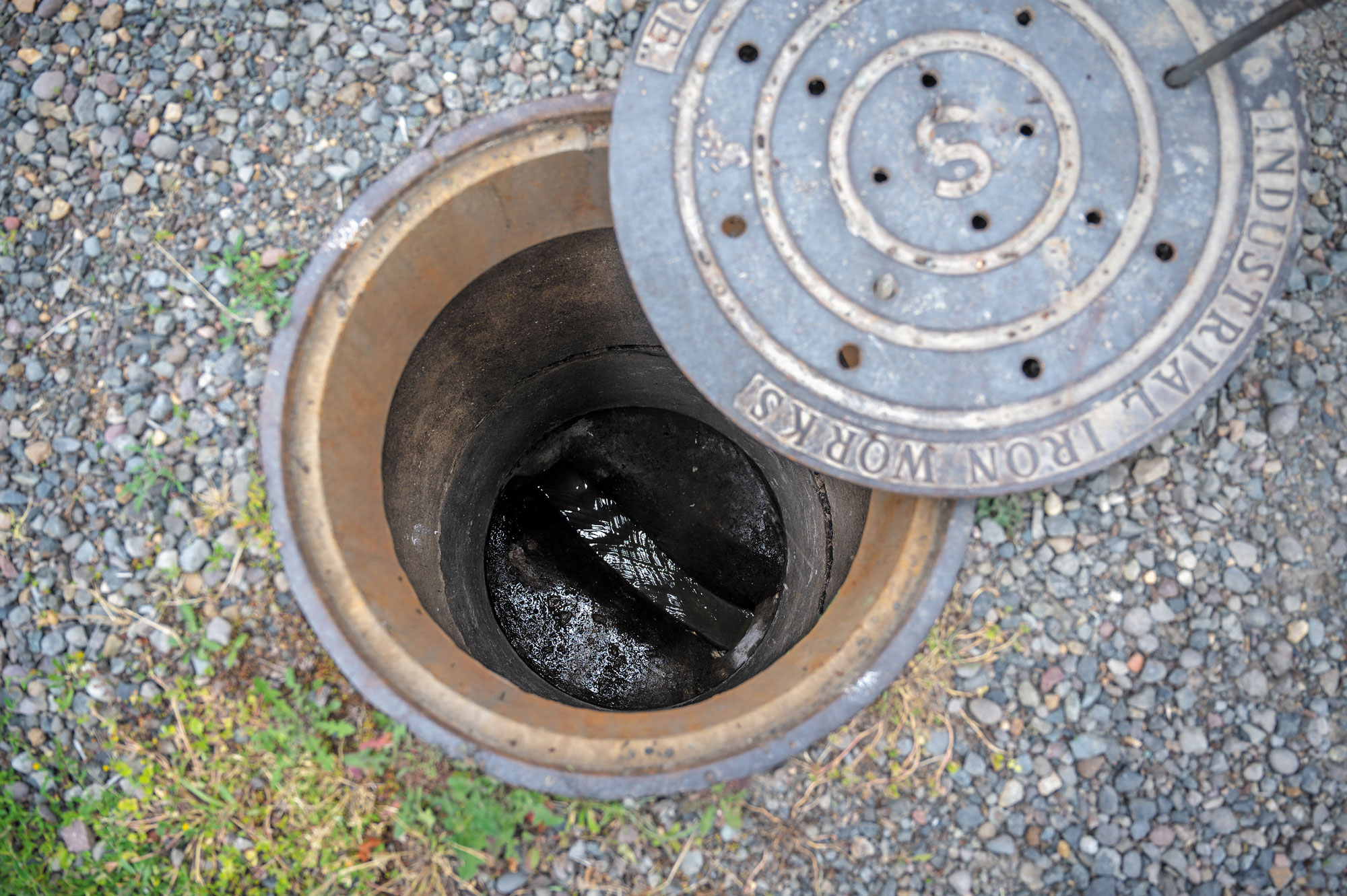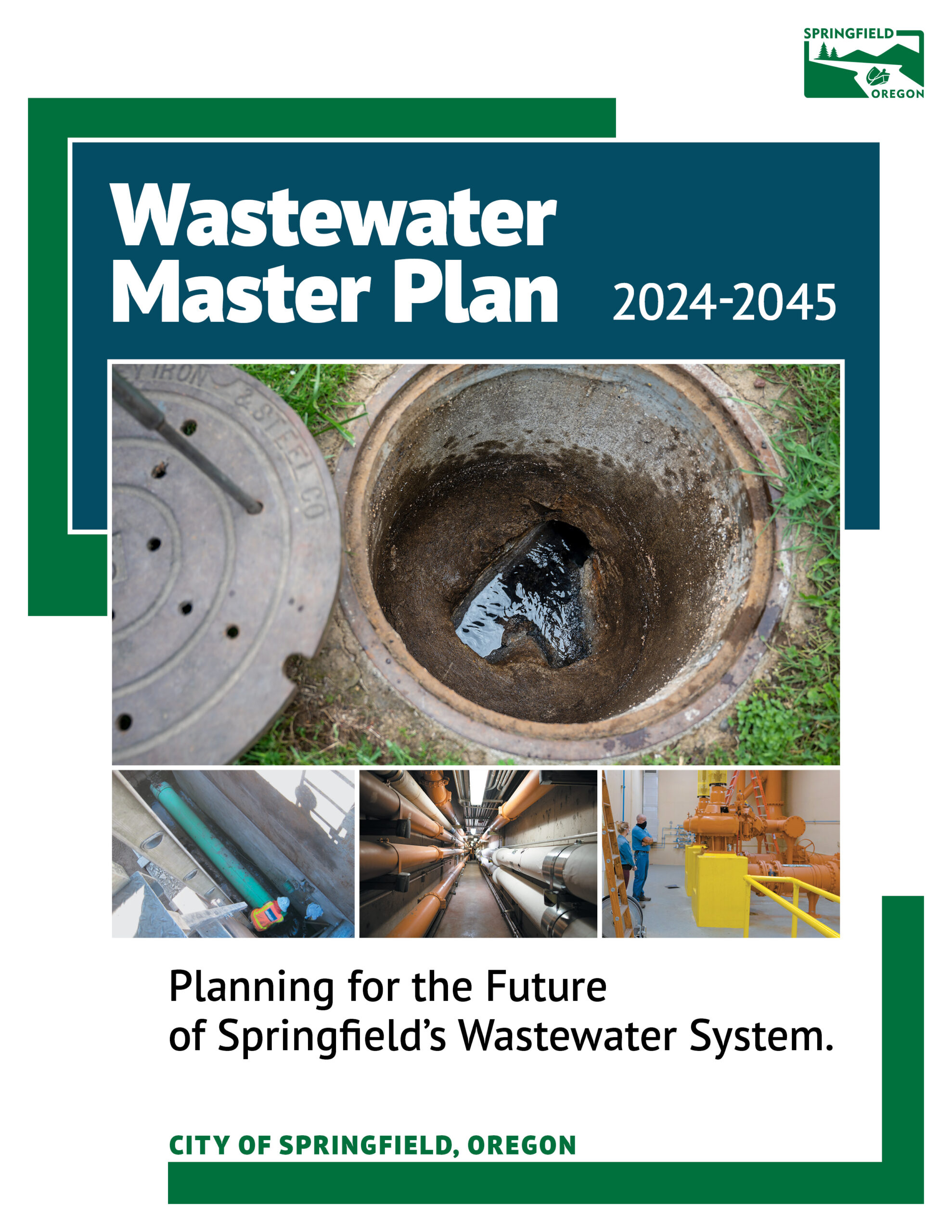After extensive research and analysis, the City of Springfield’s draft Wastewater Master Plan (WWMP) was completed in January 2024. The planning team, led by Senior Planner Molly Markarian, is preparing to present the draft and community feedback to Springfield’s Planning Commission and City Council this summer 2024. Once adopted by City Council, the Plan will guide the next 20 years of development and maintenance for Springfield’s system.
A survey for community feedback was through March 22 and 53 surveys were received. Additional feedback can be formally submitted through the normal public hearing process for the City Council meeting.
Once adopted, the plan will be a critical 20-year planning document that establishes a clear roadmap for our community’s wastewater collection system – a vital network beneath our city.
20 recommended projects
The Wastewater Master Plan presents data collected through an extensive study of the wastewater system, plus projected needs considering population growth, housing needs, new federal and state requirements, and more. It recommends 20 improvement projects to update the system to meet those needs for the next 20 years. Then it recommends changes to the City’s two programs that build and maintain the wastewater collection system, so they can adequately adapt. Finally, the Plan provides a range of financial data so City Council can decide how to pay for the recommended improvements.
The draft Plan recommends:
- Near term (0-5 years): Seven system and pump station improvement projects.
- Intermediate term (6-10 years): Six system and pump station improvement projects.
- Long term (11-20 years): Seven system and pump station improvement projects.
- Updates to Springfield’s Capital Improvements Program (CIP) to design and build the 20 projects referenced above.
- Updates to Springfield’s Capacity, Management, Operations, and Maintenance (CMOM) program so it can effectively maintain the system.
- Data so Springfield City Council can make a strategic financial plan to fund the above recommendations.
Springfield wastewater
The wastewater system is a vital network under our City that collects used drinking water from homes and businesses and transports it to the regional wastewater treatment plant in Eugene, where it’s cleaned and released into the Willamette River. The wastewater system is separate from the stormwater system (managed by the City), and it’s also separate from the drinking water system (managed by drinking water utilities, not by the City).
Master Plans keep Springfield on track
Wastewater collection and cleaning are vital to public health and safety. Within our Urban Growth Boundary, the City of Springfield is required to manage wastewater and to meet water quality standards set by Federal, State, and Local law. A system this extensive, which has existed for decades and must sustain for decades more, takes a lot of planning, construction, maintenance, and dollars. Cities plan for infrastructure like this by creating long-term Master Plans. The plans present data collected to assess what we have, present an analysis of what we need, recommend projects to address those needs, outline how to support those projects, and suggested how to pay for it.
Community feedback cannot change the work that is needed, as that is determined by the extensive research done during formulation of the Plan, combined with requirements set by law. But community feedback can affect where some development takes place, and which funding sources are chosen.
Topics addressed in the draft of the Plan:
- Analyzed the existing physical Springfield area.
- Assessed the existing wastewater collection system.
- Factored in the Federal and State requirements Springfield must meet.
- Land use in Springfield, including future developments.
- Wastewater existing flow and projected flow.
- Evaluated the existing wastewater collection system.
- 20 recommended improvement projects, resulting from the studies outlined in previous chapters.
- Estimated the cost and time needed to design and build the 20 recommended improvements.
- Recommended changes to maintain the evolving wastewater system.
- Data to inform City Council on how to pay for the improvements.
Get involved
- View the draft Wastewater Master Plan and other information at bit.ly/spfldwwmp.
- Provide Wastewater Master Plan feedback by email to mmarkarian@springfield-or.gov or Wastewater Master Plan Project, 225 5th Street, Springfield, OR, 97477.
- Sign up to receive news by email at bit.ly/spflddpwnews.


